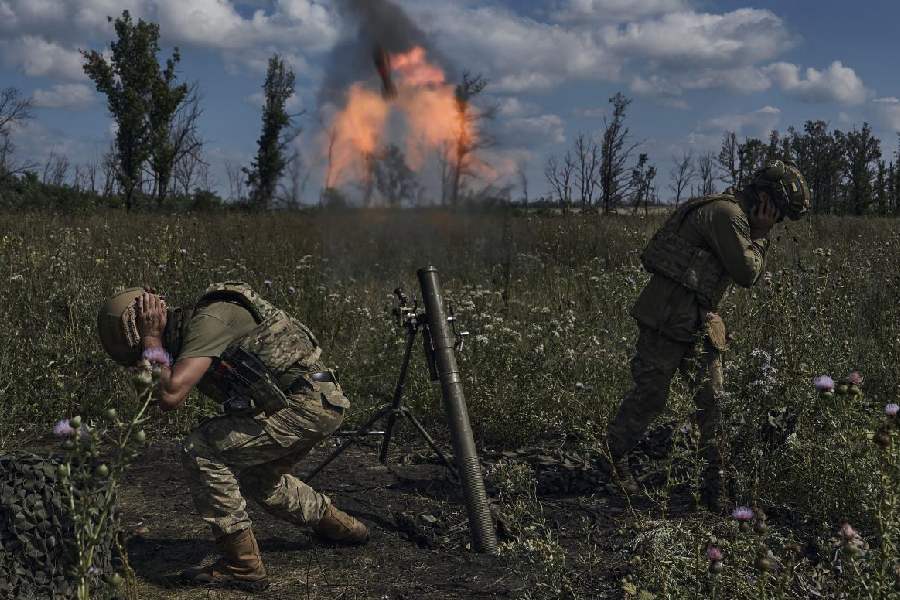Ukraine pounded targets in Russia on Tuesday with dozens of drones and rockets in a sweeping attack that inflicted serious damage on a major oil refinery and sought to pierce the land borders of the world’s biggest nuclear power with armed proxies.
Russia and Ukraine have both used drones to strike critical infrastructure, military installations and troop concentrations in their more than two-year war, with Kyiv hitting Russian refineries and energy facilities in recent months.
Russia said Ukrainian proxies had sought to cross the Russian border in at least seven attacks which Russian forces had repelled. The Russian-speaking Ukrainian proxies said they had breached the border, a claim denied by Russia.
In one of the biggest Ukrainian drone attacks on Russia to date, Russia said it had downed 25 Ukrainian drones over Russian regions including Moscow, Leningrad, Belgorod, Kursk, Bryansk, Tula and Oryol. Many more drone attacks were reported.
Russian officials reported attacks on a slew of energy facilities, including a fire at Lukoil’s NORSI refinery and a drone destroyed on the outskirts of the town of Kirishi, home to Russia’s second-largest oil refinery.
Gleb Nikitin, governor of the Nizhny Novgorod region, posted a picture of a fire truck beside the NORSI refinery and said emergency services were working to put out a blaze there.
“A fuel and energy complex facility was attacked by unmanned aerial vehicles,” Nikitin said on Telegram.
Industry sources told Reuters on condition of anonymity that the main crude distillation unit (AVT-6) at NORSI was damaged in the attack, which means that at least half of the refinery’s production is halted. Lukoil declined to comment.
NORSI refines about 15.8 million tonnes of Russian crude a year, or 5.8% of total refined crude, according to industry sources.
It also refines about 4.9 million tonnes of fuel, 11% of Russia’s total, 6.4% of diesel fuel, 5.6 per cent of fuel oil and 7.4 per cent of the country’s aviation fuel, according to industry sources.
Striking Russian oil facilities is a problem for President Vladimir Putin as he faces off against the West over Ukraine, with domestic fuel prices sensitive ahead of a March 15-17 presidential election.
Russia imposed a six-month ban on fuel exports on March 1. Along with Saudi Arabia, the US and Iran, Russia has vast energy reserves but has, since oil was discovered in the wilds of Western Siberia in the 1960s, often relied on Western technology to exploit and refine its crude.
The Kremlin said the Russian military was doing everything necessary and that what it calls its military operation in Ukraine would continue. Russia said its forces had repelled a series of attacks aimed at piercing the land border in the western Belgorod and Kursk regions after the shelling of civilian targets.
“Ukrainian terrorist formations, supported by tanks and armoured combat vehicles, attempted to invade the territory of the Russian Federation simultaneously,” the Russian defence ministry said.










